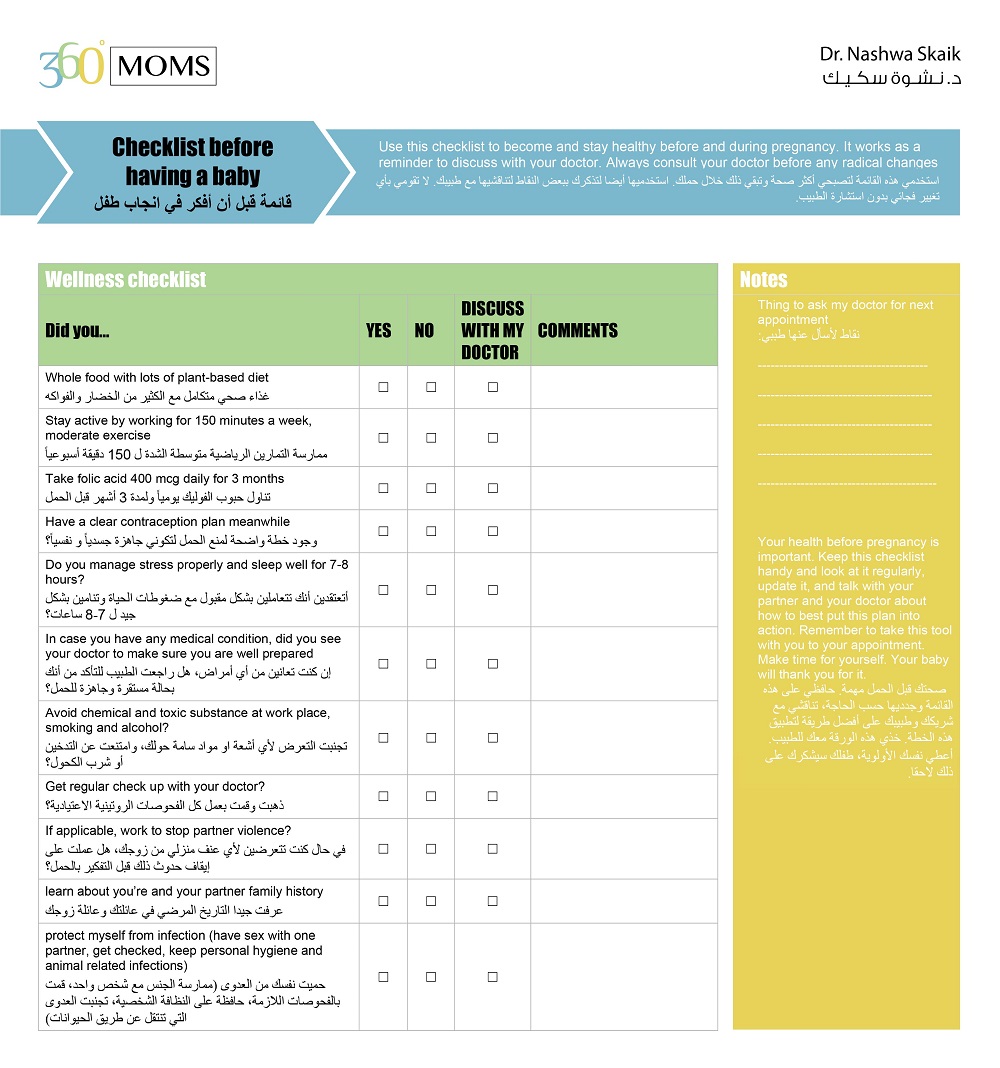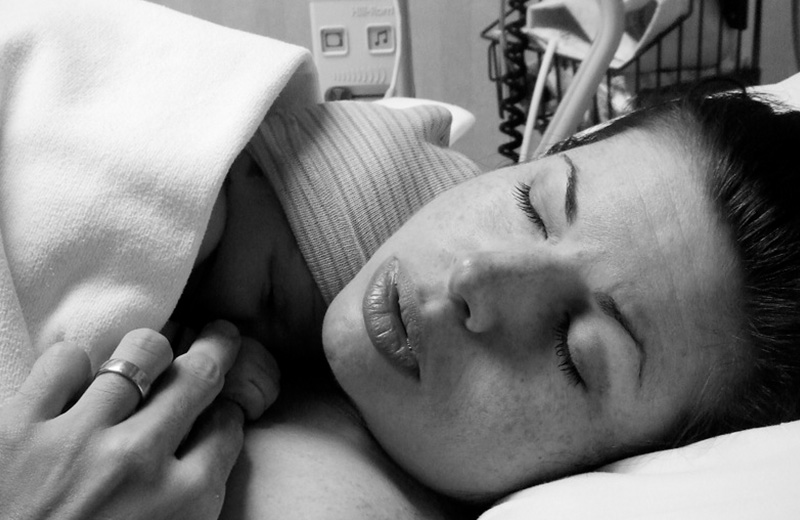Preconception
6 things to know before getting pregnant

If you and your partner are planning on having a baby, this article is for you.
Whether you are engaged, newly-married, trying for the first, second or your last child, you are encouraged to slow down and do some research first - big projects require good planning, and getting pregnant certainly qualifies as one!
Health is everything, which is why mums-to-be need to do their best to be in optimum health before conceiving.
In other words, they must be physically and mentally well-prepared for the journey ahead if they’re looking to enjoy a smooth and healthy pregnancy as well as increase their chances of bringing a healthy baby into the world.
This preparatory process is referred to as Preconception Care, and it varies from woman to woman, depending on their personalized medical history and social and mental characteristics (1). Below, I go into more detail about Preconception Care and the specific points you need to pay attention to:
Healthy lifestyle
A healthy diet counts for a lot, which is why eating plenty of fruits and vegetables is wise as they’re your main source of all the necessary pre-pregnancy vitamins.
Additionally, remaining active and maintaining a healthy weight before getting pregnant is important for reducing the risk of any future complications, such as an increase in your blood pressure, diabetes or even facing difficulty during the baby’s delivery.
Contraception
You are advised to use a suitable and safe form of contraception, with the consultation of your doctor, until you’re ready to conceive. It is also wise to distance each pregnancy from the next to allow your body to rest in-between pregnancies.
Folic acid
All women are advised to take 400 Micrograms of Folic acid three months before getting pregnant to prevent major congenital anomalies to your fetus (3).
Avoid harmful substances
This includes the obvious: smoking, alcohol and working in an environment where you may be close to metals or exposed to radiation (4).
Your family’s medical history
Since your health is everything, staying up-to-date on your general health is essential. Update your visits to your doctor for routine check-ups and, if relevant, a medication review.
Moreover, being aware of any genetic diseases that are common in your family or your partner’s family is essential at this stage for the protection of your baby.
An example of detecting a genetic disorder would be the mandatory check for Thalassemia, which Middle Eastern couples and those from the Mediterranean region are legally requested to get this mandatory test before getting married.
Routine check-ups for sexually transmitted infections (STIs) are also essential to ensure that you and your partners are free from any infections that may have a detrimental effect on your pregnancy (3,4).
Mental health and domestic violence
Once your baby arrives, you’ll want to raise your child in a safe and sound environment. Before getting pregnant, make sure to resolve any outstanding stressful issues with your partner. If you face any kind of physical/mental mistreatment or violence from your partner, see a counsellor and seek help before you take on this life-altering decision.(1).
***
I have prepared a simple checklist where you can work on yourself, with your partner or when you go see your doctor, to ensure that you have covered all the essentials and that you are making progress towards your goal for you to thrive, survive and enjoy your planned pregnancy.

Download the checklist from here.
References:
- Who.int. 2020. Preconception Care: Maximizing The Gains For Maternal And Child Health. [online] Available at: <https://www.who.int/maternal_child_adolescent/documents/preconception_care_policy_brief.pdf> [Accessed 16 August 2020].
- The American Journal of Clinical Nutrition, 1998. Clinical guidelines on the identification, evaluation, and treatment of overweight and obesity in adults: executive summary. Expert Panel on the Identification, Evaluation, and Treatment of Overweight in Adults. 68(4), pp.899-917.
- Moos, M., Dunlop, A., Jack, B., Nelson, L., Coonrod, D., Long, R., Boggess, K. and Gardiner, P., 2008. Healthier women, healthier reproductive outcomes: recommendations for the routine care of all women of reproductive age. American Journal of Obstetrics and Gynecology, 199(6), pp.S280-S289.
- World Health Organization. 2020. Global Action Plan For The Prevention And Control Of Ncds 2013-2020. [online] Available at: <https://www.who.int/nmh/events/ncd_action_plan/en/> [Accessed 16 August 2020].
- Singh, S., Sedgh, G. and Hussain, R., 2010. Unintended Pregnancy: Worldwide Levels, Trends, and Outcomes. Studies in Family Planning, 41(4), pp.241-250.














